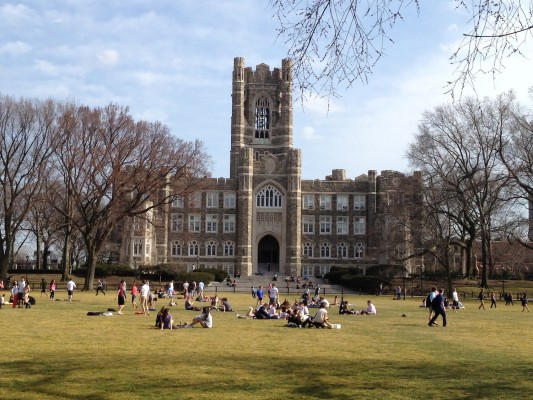BREAKING: Diversity Task Force Releases University Study
November 15, 2016
The Task Force on Diversity at Fordham University has released the results of their long-anticipated study. The 38-page packet was delivered by email on Nov. 14 to the entire Fordham community along with a response from the university, following letters of request from student organizations and the Faculty Senate which responded to racially charged incidents on campus.
University President Rev. Joseph M. McShane, S.J. created the Task Force in Dec. 2015 to study the climate on Fordham’s campuses and develop recommendations to help the University address its obstacles. A heavy emphasis was placed on the evolution of Fordham in its Jesuit ideals and “welcoming and affirming ‘catholic’ culture.”
The task force was comprised of faculty, administrators, students, alumni and support staff from the Office of the President, for a total of 21 members. These members held interviews with all deans and vice presidents and/or their designees, in which five questions were asked about their perceptions on racism and discrimination at Fordham University, what their “office/school/group” is currently doing to address these problems, and what they and the University need to do in order to create and maintain a more diverse and inclusive university community.
Meetings were also requested with departments “critical to the life and functions of the University,” and five committee meetings were opened to all members of the Fordham community. Graduate students were welcomed at two meetings.
The findings of the study included a “wide-ranging feeling among undergraduate students of color that diversity is not valued, and safe spaces do not exist for them to express their concerns or voice their complaints about what they are encountering as learners at Fordham.” Discrimination, recurrent microaggressions, “emblematization” by professors, isolation in residence halls and financial concerns were also reported by students of color.
In addition, the task force found concerns that implicit bias exists in hiring decisions within the administration and faculty, and a lack of diversity and human resources training or a diversity plan at all levels of hiring. The school’s relationship with the Bronx and its service to New York City were also studied.
Final recommendations of the task force ranged from the appointments of a Committee on Diversity and Inclusion, a Vice President for Human Resources and a Chief Diversity Officer to the establishment of a required, credit-bearing course that “helps students address racism and exclusion and grasp issues surrounding diversity.” In even broader contexts, they recommended ongoing preparation for teaching for and about diversity for all faculty members and instructional staff, as well as the establishment of a junior college located in the South Bronx to recruit the local population in financial need. This was rejected in the university’s response.
The university’s response and action plan included several concessions to the goals set out by the task force. The first is the appointment of an officer to hold the title of Special Advisor to the President for Diversity, Chief Diversity Officer, and Associate Vice President for Academic Affairs, who will report to the President and the Provost, as well as the hiring of a Chief Human Resources Officer and the creation of a standing Diversity Committee.
The plan says that Fordham will “place priority on diversifying the ranks of all University administrators and faculty members,” and conduct annual workshops for deans, chairs, vice presidents, and search committees. They will consider establishing a peer mentoring program for students of color while creating specific scholarship funds for students who seek to become leaders in diversity and inclusion.
The plan outlines curricular changes beginning next academic year, such as an expansion of the new student orientation programs for undergraduates and “a proposal to require all first-year undergraduate students to enroll in a one-credit ‘First Year Experience’ course containing a significant diversity component.” American Pluralism, Values Seminar and Interdisciplinary Capstone Core courses will have expanded focuses on race and diversity.
In the concluding reflections, McShane said, “We have to admit to ourselves that the issues we face and the conditions they create can only be solved by conversion of heart. If that is the case, we have to engage in honest examinations of conscience and of consciousness.”
A previous version of this article did not include an account of the University Response.










